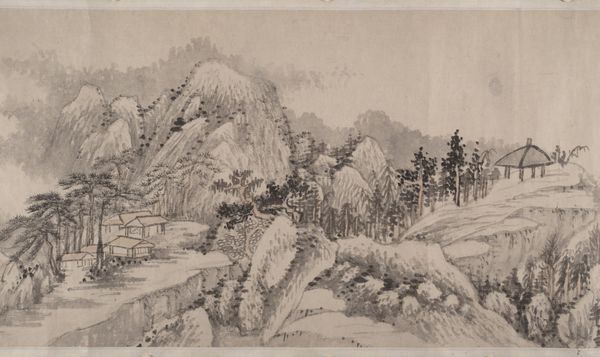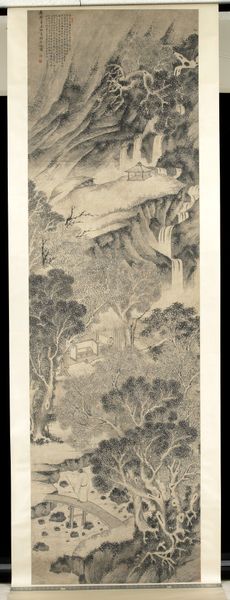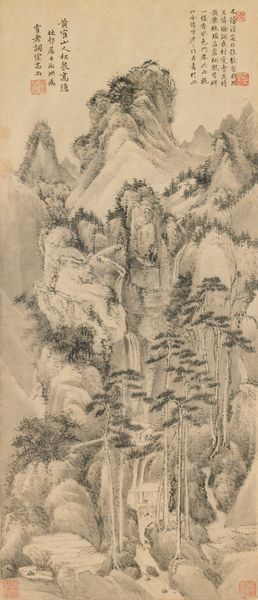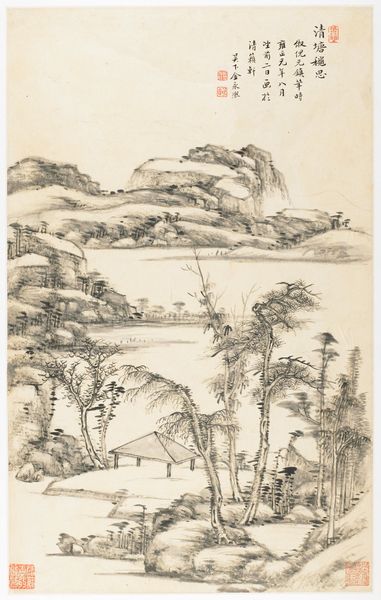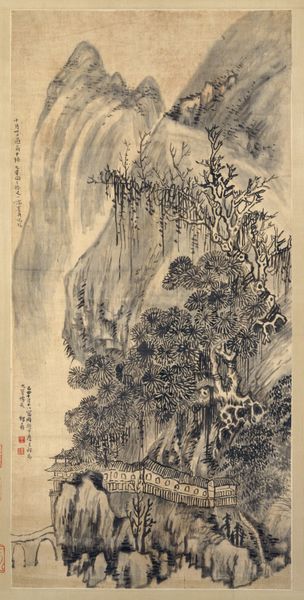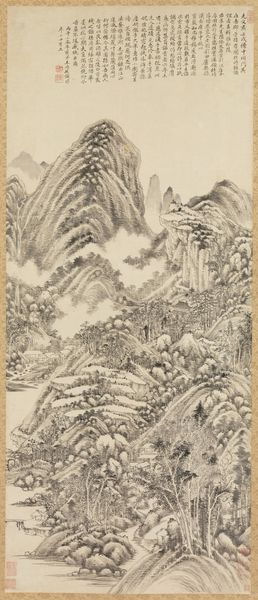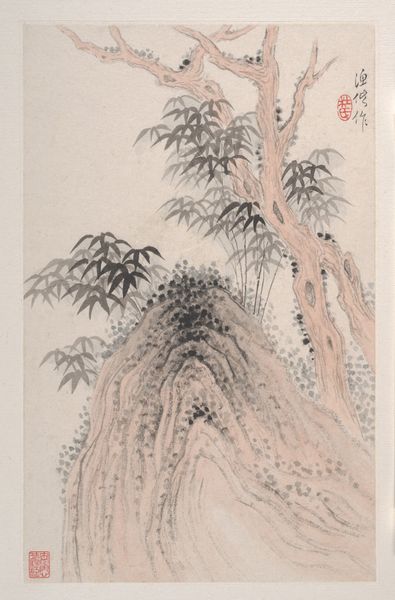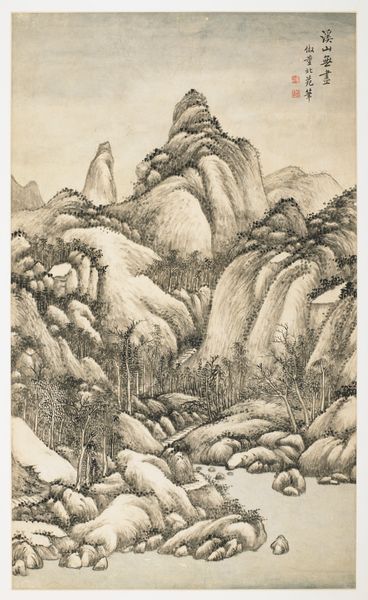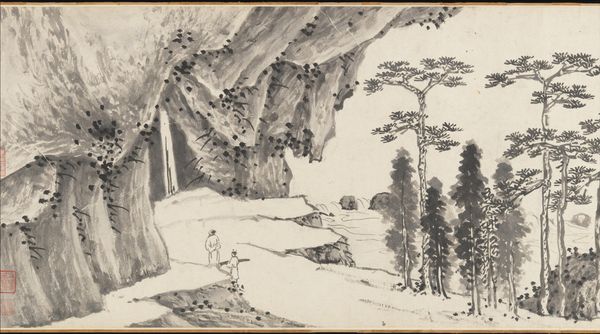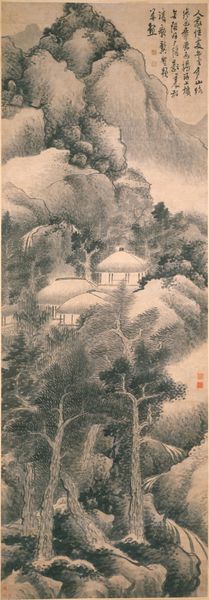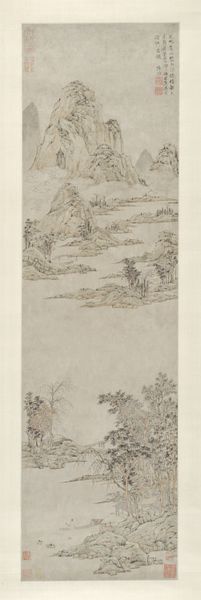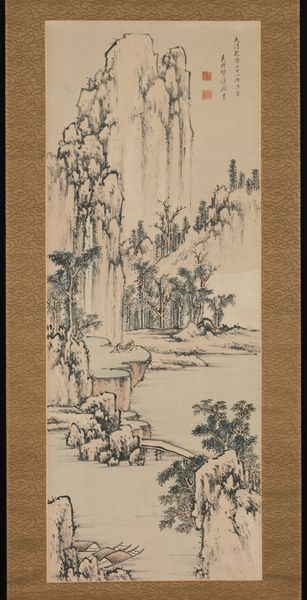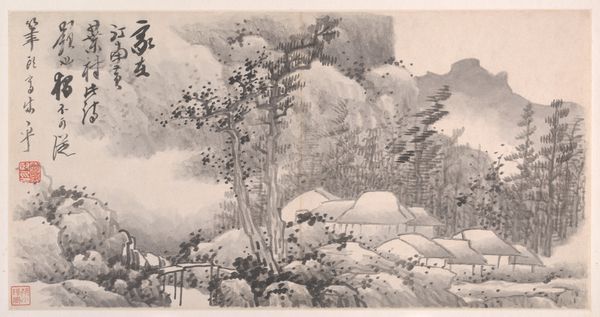
Landscape with Pines in the Manner of Wang Hui c. 19th century
0:00
0:00
painting, ink
#
ink painting
#
painting
#
asian-art
#
landscape
#
ink
#
orientalism
#
calligraphy
Dimensions: 52 3/8 × 20 7/8 in. (133.03 × 53.02 cm) (image)82 3/8 × 27 7/8 in. (209.23 × 70.8 cm) (mount, without roller)
Copyright: Public Domain
Editor: This ink painting, "Landscape with Pines in the Manner of Wang Hui," is attributed to Okada Hankō around the 19th century. The meticulous brushstrokes depicting the trees and mountains are incredible. It almost feels like a stage set. What can you tell me about how it's put together? Curator: This work offers an interesting insight into the artist's labor and materials. Note the deliberate choices of ink density and brushstroke; how do they serve not just representation, but also tactile engagement with the paper's surface? Consider too how the "Manner of Wang Hui" invokes a specific artistic lineage. It suggests that skill is not solely about individual talent but also about adherence to certain production methods. Editor: So, you're saying the "manner" isn't just about style but a commitment to specific labor practices, as well? The use of ink here really emphasizes this careful and perhaps disciplined style. Curator: Exactly! This invokes the role of the artist, their workshop system, and even the specific tools employed – the types of brushes, inkstones, and the sourcing of paper. These details shape our understanding of value. We can also speculate about who commissioned this work, considering their socioeconomic status and appreciation for such displays of practiced skill. Does that add to how you view the piece now? Editor: I think it gives context to why an artist would so carefully adhere to certain traditional means, thinking of the patron and marketplace definitely adds new dimension. Curator: And perhaps this also challenges any romantic notion of artistic genius! We see an integration of artistic expression within established systems of patronage, labor, and production. Editor: That’s fascinating! It encourages you to think of artistic skill more like craftsmanship, and less like innate talent. I will definitely reflect more on the production of the art. Curator: Indeed! Materiality invites us to critically examine what we consume and the value we assign to these creations.
Comments
minneapolisinstituteofart about 2 years ago
⋮
The painting is by Okada Hankō, who was one of the third generation of Nanga artist, and the calligraphy on the upper left is by Hankō’s father, Okada Beisanjin, who a Nanga painter and scholar in Chinese classics. His father, literati artist Okada Beisanjin painted more eccentric works that broke away from the Chinese model. Hankō was more tradition-bound in his painting, and much more conventional in his lifestyle. Next to Hankō’s signature on the lower right, it states in the style of Wan Shigu, commonly known as Wang Hui. 王翬 (1632- 1720):清代の人。字は石谷。王鑑の弟子。石谷の画は南北両宗を筆端に溶融し、二王(王鑑、王時敏)の外に於いて別に画流を開き、その功力の深さは古今に比なく、時に画聖と称せられる。
Join the conversation
Join millions of artists and users on Artera today and experience the ultimate creative platform.
